|
|
|
|
Nau mai haere mai and welcome to your latest newsletter.
As we swing into the 2023 election cycle, it is worth considering who is giving money to our politicians – and why. More than $4 million has already been donated to our main political parties this year – with more than 75% of that money going to the parties on the political right. There is no denying that money could impact the outcome of our 2023 election.
So are our rules tough enough to ensure that the big donations don’t undermine our democratic norms? An interim report from the Independent Election Review has recommended greater transparency in our political donation system and increased state support for political parties to reduce the need for private donations.
The authors of our lead story,
Lisa Marriott and Max Rashbrooke, agree more needs to be done to ensure the wealthy don’t have an outsized influence on our electoral process.
According to them, moving away from a reliance on large individual donors would help increase public trust in the way political parties are funded. Stronger rules would also help level the playing field of access and potential influence in New Zealand politics.
You’ll find more to read here and on our homepage, including a look at new research that shows traditional food-gathering sites expose people to antibiotic-resistant microbes.
Many thanks for reading and for your ongoing support. Until next week, mā te wā.
|

|
Debrin Foxcroft
Deputy New Zealand Editor
|
|

Lisa Marriott, Te Herenga Waka — Victoria University of Wellington; Max Rashbrooke, Te Herenga Waka — Victoria University of Wellington
Big donors are already pouring millions into New Zealand’s 2023 election. But new proposals could make it harder for large donations to translate into political influence in future.
|
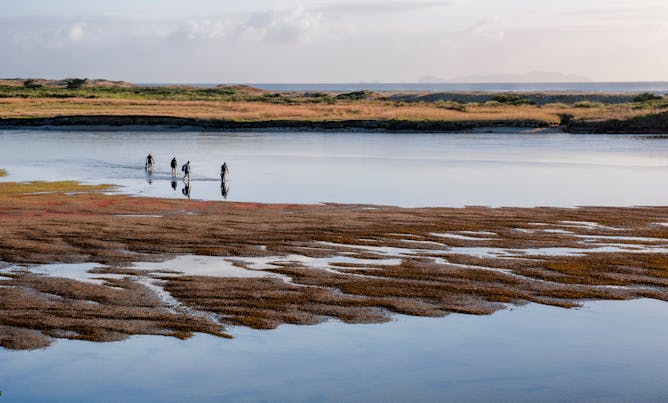
Jack Heinemann, University of Canterbury; Sophie Joy van Hamelsveld, University of Canterbury
Our new research found up to 20% of bacteria in wild foods were resistant to a common antibiotic drug. Some samples had resistance to last-resort antibiotics, prescribed when other drugs have failed.
|
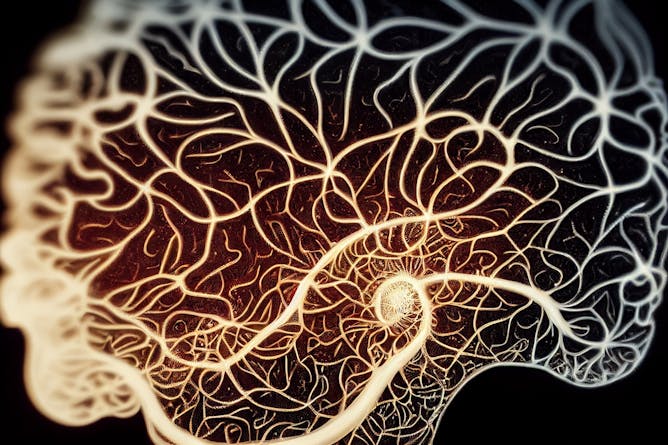
Michael Musker, University of South Australia
This latest research provides hope for people whose symptoms are harder to treat.
|

Deniz Özkundakci, University of Waikato
Microplastic pollution in lakes could affect the food web, all the way to people fishing and harvesting mussels, as well as sources of drinking water.
|
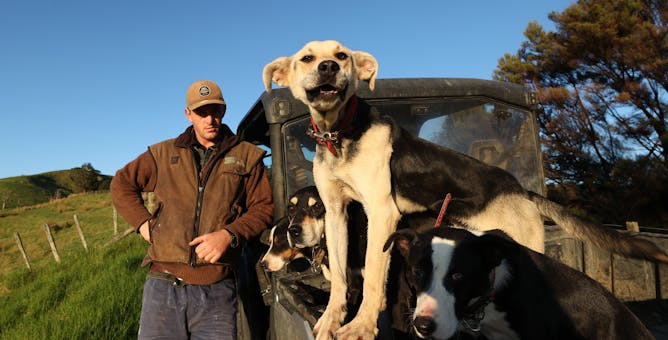
Pavel Castka, University of Canterbury; Corey Ruha, University of Waikato; John Reid, University of Canterbury; Xiaoli Zhao, Lincoln University, New Zealand
Consumers’ main concerns regarding farm monitoring are food safety, animal welfare and water quality. Many would like to see Māori values and land practices incorporated.
|

Alexander Gillespie, University of Waikato
The latest NATO summit has put the spotlight on the global reach of the regional alliance.
|
From our foreign editions
|

Michelle Grattan, University of Canberra
The official pamphlets for the ‘yes’ and ‘no’ cases for the Voice referendum will be released on Tuesday
| |
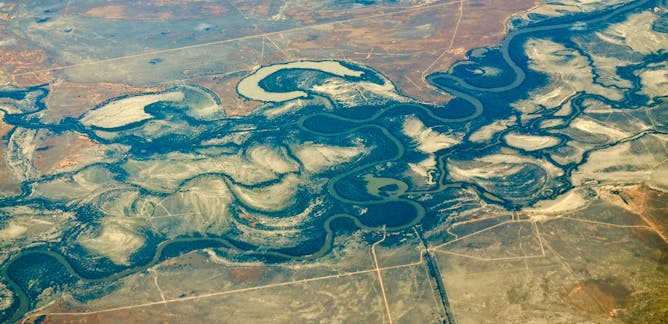
Jamie Pittock, Australian National University
Projects have not been delivered. States are bickering. If the Albanese government is to uphold its election promise to deliver the Murray plan, hard tradeoffs are needed.
|

Alan Pears, RMIT University
Toys are the most plastic-intensive consumer goods in the world. So how can we avoid movie tie-in fads adding to the surging plastic waste problem?
| |
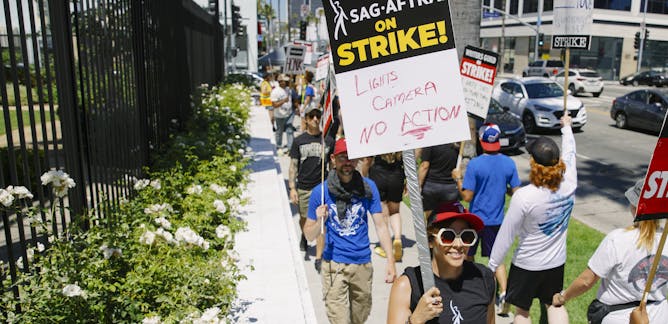
David Arditi, University of Texas at Arlington
Some of the ways that streaming has transformed the industry are jeopardizing actors’ livelihoods.
|

Jennifer Mathers, Aberystwyth University
Machinations over the march on Moscow are continuing.
| |
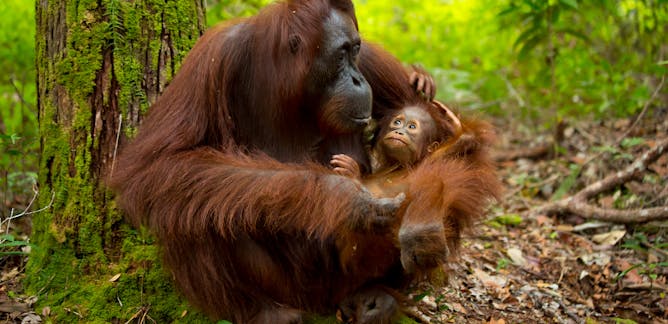
Bill Laurance, James Cook University
In recent years, Indonesia has slashed the rate of deforestation. That’s why this new crackdown on researchers is so surprising.
|

Jen Webb, University of Canberra
Milan Kundera, the celebrated Czech author best known for The Unbearable Lightness of Being, has died, aged 94. His work interrogated totalitarianism and explored ideas – leavened with bleak humour.
| |
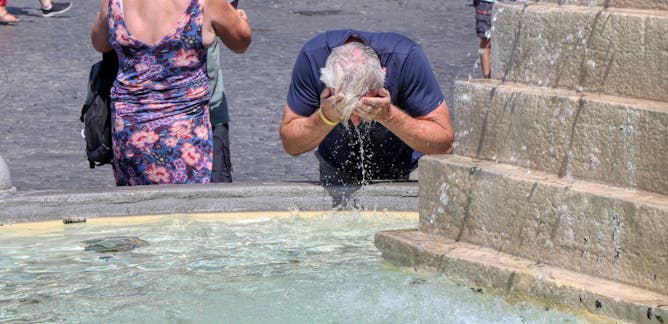
Emma Hill, Coventry University; Ben Vivian, Coventry University
Europe is gripped by a heatwave called Cerberus - it may be a sign of things to come.
|

Kathy Walker, University of Saskatchewan
Manitoba’s refusal to fund the search for the remains of three Indigenous women is met with denouncement from the Assembly of First Nations.
| |
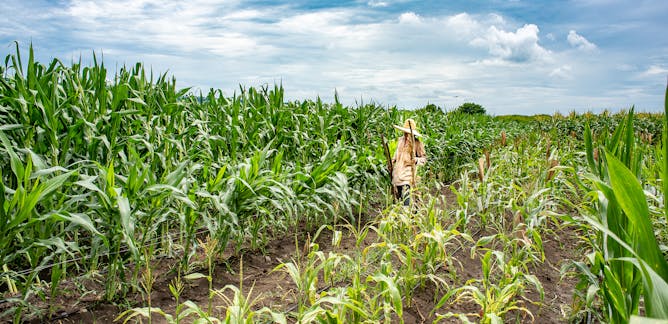
Thomas Daum, University of Hohenheim; Frédéric Baudron, International Maize and Wheat Improvement Center (CIMMYT); Ingo Grass, University of Hohenheim; Matin Qaim, University of Bonn; Regina Birner, University of Hohenheim
Labour, yields, and biodiversity are all elements of agriculture that need to be balanced.
|
|
|
| |
| |
| |
| |
|
|
|
|
|
|
|